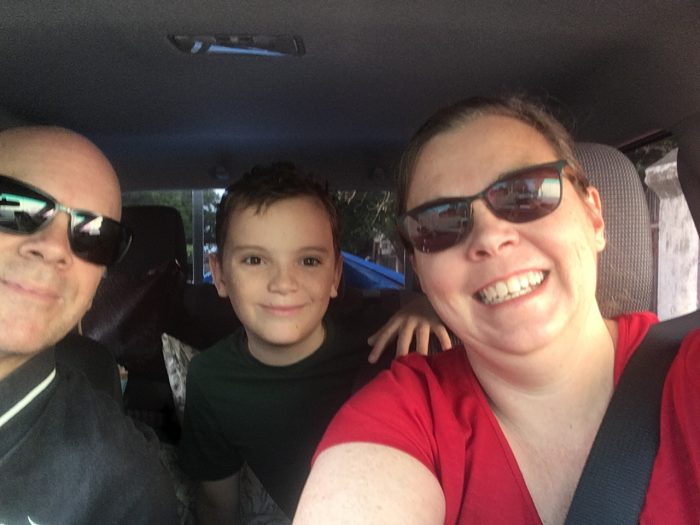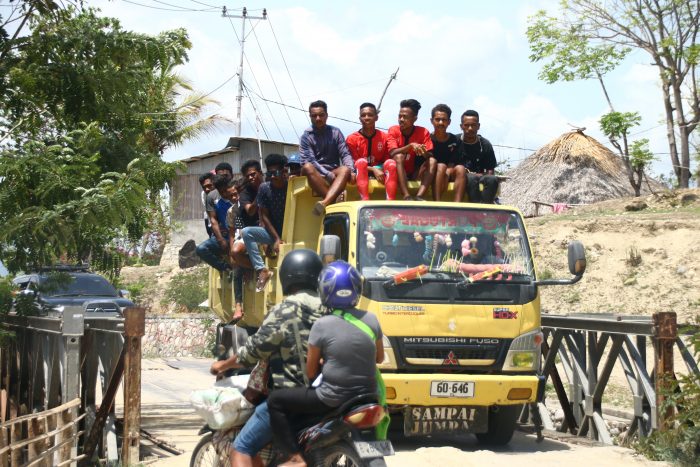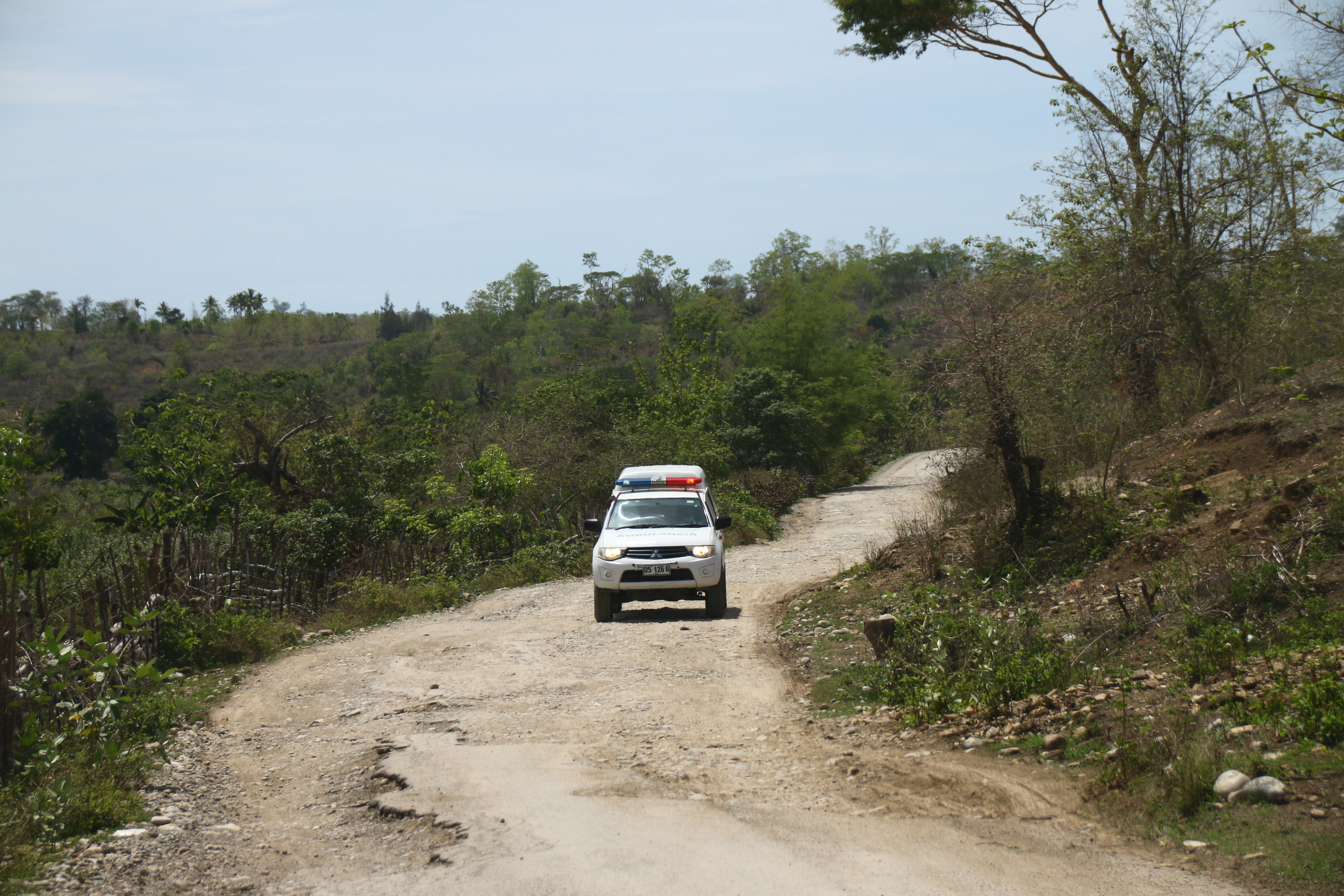Travelling by Car in Timor-Leste
If you were to do a 176 kilometre road trip from your home how long would it take? Two hours? A little more perhaps if you weren’t driving on a highway. The Job family, Jason, Kim and their nine year old son Sam, one of our staff families in Timor-Leste recently took a trip of this distance from their home in Dili to a town on the southern coast of the island called Suai. It took more than five and a half hours.
In Timor-Leste, like many places in the world, road travel is bumpy, hot and often slow due to the road conditions and the surprises that are found along the way. Surprises like monkeys playing on the roadside, giant potholes where you cannot see the bottom, speeding buses traveling in the other direction on narrow roads that only fit one vehicle or a herd of goats just spending time in the middle of the road.
But this road trip was made a lot easier, safer and more comfortable because of the new MAF vehicle purchased in 2019 with money donated through MAF Australia. Challenging roads are easier to navigate with a vehicle that is reliable and easy to drive. The old MAF vehicle has a tendency to overheat during long climbs and the faulty temperature gauge doesn’t help.
Despite the bad road conditions and the time consuming nature of the trips, these trips are often necessary to support MAF working in a country. In this case, the Job family was transporting a drum of fuel for the MAF aircraft to use as contingency fuel in Suai. Aviation regulations mean that a drum like this cannot be transported in the plane, so a trip by road is needed.
Timor-Leste has a mountain range that runs down the centre of the island. This means that when the weather is wet and rainy low cloud often sits on top of these mountains making it difficult for our pilots to navigate through to the three airstrips on the southern coast of Timor. Sometimes the planes need to circle around to try and find openings in the cloud, or fly to various valleys to see if it is possible to fly through to reach Dili. Having fuel stored in Suai will allow our pilots to re-fuel on the southern coast, giving the pilot more margin and more options, something that is often needed when the weather is bad.
Timor-Leste is a beautiful country. Mountain peaks, green covered hills, roadside stalls selling cabbages, strawberries and mangoes and smiling Timorese children everywhere you look. Local people in the small towns seemed surprised to see Samuel our son, as foreign children aren’t often seen in this part of the country often. At times we felt like royalty waving out the window to all those sitting outside their homes watching the traffic go by.
As we drove to Suai and home again, we were reminded again of how important MAF is to the health and well being of the people of Timor-Leste, for as we bumped and bounced across potholes, stopped for passing animals and avoided small landslides on the road, we saw ambulances traveling in the opposite direction. These road ambulances are the alternative transportation for seriously ill and injured people who need greater medical care in Dili when our aircraft cannot provide a medevac flight.
In 2019, MAF Timor-Leste flew 336 medevacs, with 405 patients transported to Dili, but each year there are many times when we cannot carry out a requested flight. Bad weather, low cloud, a request that comes too late in the day to fly safely or aircraft that are grounded due to maintenance issues are just some of the reasons why our MAF pilots cannot help people in need. And for these people, more than five hours in a road ambulance, instead of thirty minutes in a MAF plane, is their transportation to Dili’s National Hospital.
While a road trip like this is a fun adventure for our family, all healthy and under no time pressure. Seeing the ambulances on the road was a vivid reminder of just how stressful, scary and uncomfortable this trip would be for a critically ill or injured person who desperately needs to reach that hospital in Dili. So we arrived back in Dili thankful! Thankful for our safe journey on those terrible roads, thankful that the bumping and bouncing is done and thankful that because MAF is working in Timor-Leste hundreds of people each year do not have to travel on those roads while they are unwell.











